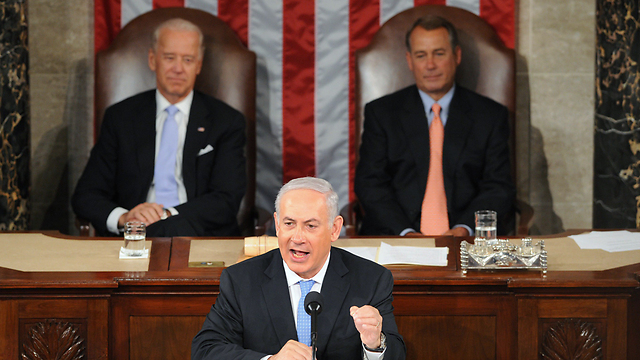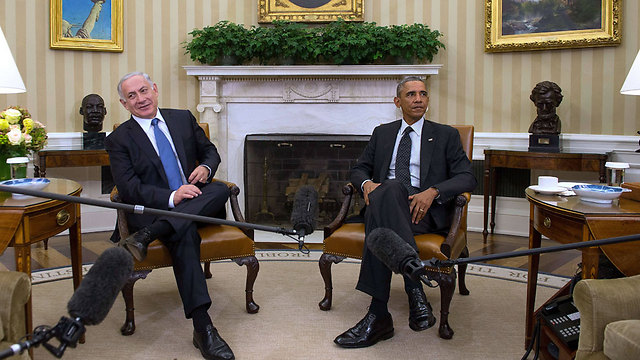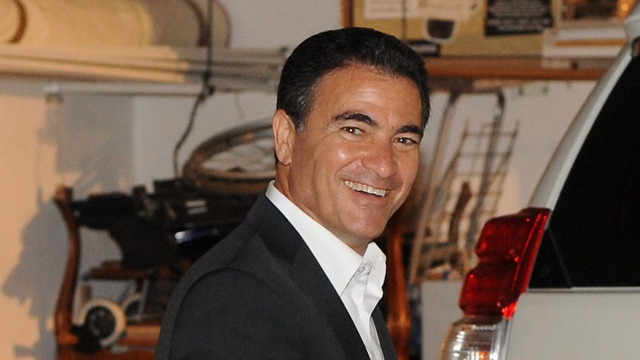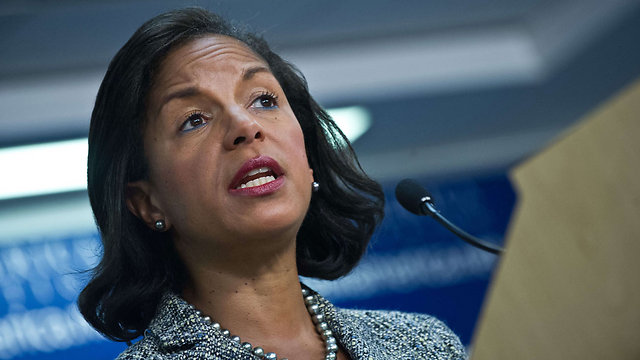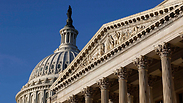
Report: Arab ambassadors reject Netanyahu invitation to attend Congress speech
The Atlantic's Jeffery Goldberg reports Israeli ambassador to DC worked frantically to try to get representatives from moderate Arab nations to attend Netanyahu speech, but was rejected; report further claims Netanyahu's national security advisor objects to speech.
At Prime Minister Netanyahu's behest, Israel's ambassador to the United States, Ron Dermer, has unsuccessfully attempted to enlist ambassadors from moderate Arab states to attended Netanyahu's planned address to the US Congress on the looming nuclear deal between the world and Iran, Jeffery Goldberg claimed in The Atlantic magazine Wednesday morning.
The report further claimed that Yossi Cohen, Netanyahu's national security advisor, told a couple of officials in the US that he wished Netanyahu's speech would not take place.
According to Goldberg, who cited Israeli sources, at Netanyahu's request, Dermer personally e-mailed Arab the ambassadors from Kuwait and the United Arab Emirate pleading for their attendance at the March 3th speech, but to no avail.
The report said Dermer tried to convoy the longstanding Israeli talking point that a nuclear Iran is a threat not just to Israel but to the entire world, especially regional forces like the moderate Sunni Gulf states.
The report further noted that Netanyahu's national security advisor Yossi Cohen told at least two people that he wished the speech were not taking place.
Related stories:
- Netanyahu snubs Dems as Rice warns US speech 'destructive' to Israel ties
- Netanyahu did not consult national security advisor on Congress speech
- Unwelcome mat: White House tries to counter Netanyahu visit
According to source contacted by Goldberg and who spoke with Cohen, Netanyahu's aide echoed claims made by his American counterpart – Susan Rice – on Wednesday, according to which the speech's timing – two weeks before the Israeli elections – paints both Israel and the Iranian issue in partisan colors, a move which Rice said was nothing short of "destructive" for Israel-US ties.
Sources in the Prime Minister's Office in Israel told Ynet that Cohen supports the speech, and finds the current timing necessary for the task at hand.
Meanwhile, Netanyahu rejected an invitation to meet with two Democratic senators, citing fears it would further fuel claims that his speech was turning Israel and the looming nuclear deal with Iran into a partisan issue.
Republican congressional leaders broke diplomatic protocol by consulting neither the White House nor Democrats in Congress before inviting Netanyahu to address a joint meeting of the House of Representatives and Senate.
Netanyahu has faced criticism at home and abroad for his decision to address the US Congress two weeks before Israeli elections and at a sensitive point in international negotiations on Iran's nuclear program.
"Though I greatly appreciate your kind invitation to meet with Democratic Senators, I believe that doing so at this time could compound the misperception of partisanship regarding my upcoming visit," Netanyahu wrote in a letter to Senators Richard Durbin and Dianne Feinstein obtained by Reuters.
Durbin and Feinstein, two senior Senate Democrats, invited Netanyahu to a closed-door meeting with Democratic senators in a letter on Monday, warning that making US-Israeli relations a partisan political issue could have "lasting repercussions."
In his letter, Netanyahu said he agreed "wholeheartedly" that strong ties between the United States and Israel have been built on bipartisan support. "I also fully understand the importance of bipartisan support for ensuring that our alliance remains strong in the future," he wrote.
He expressed appreciation for the opportunity to address lawmakers from both parties on Tuesday and said he regretted that the invitation has been perceived by some as partisan.
"I can assure you my sole intention in accepting it was to voice Israel's grave concerns about a potential nuclear agreement with Iran that could threaten the survival of my country," Netanyahu wrote.
He said he would be glad to address a bipartisan meeting of senators during a future visit to Washington. Spokesmen for Durbin and Feinstein could not immediately be reached for comment.














